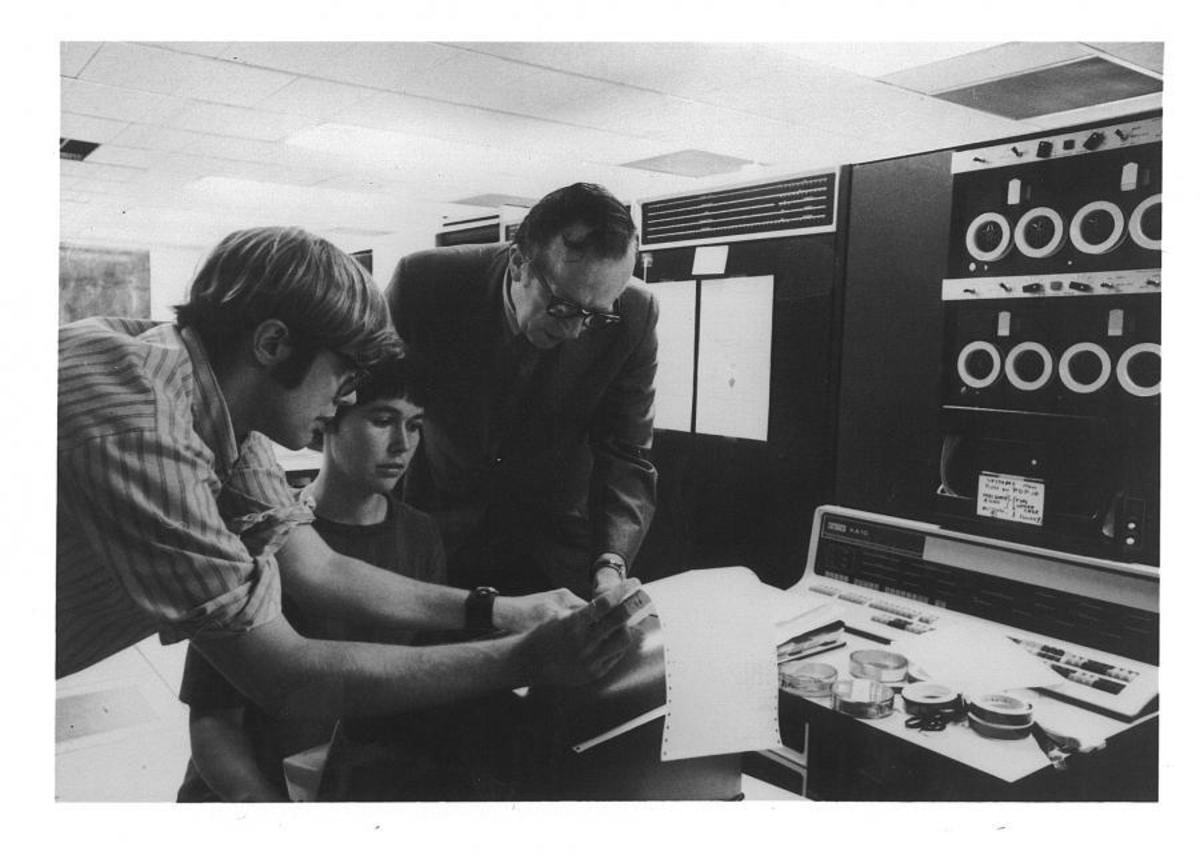Is Over-exposure to Technology Making Us Less Effective?
Maslow's Heirarchy of Needs
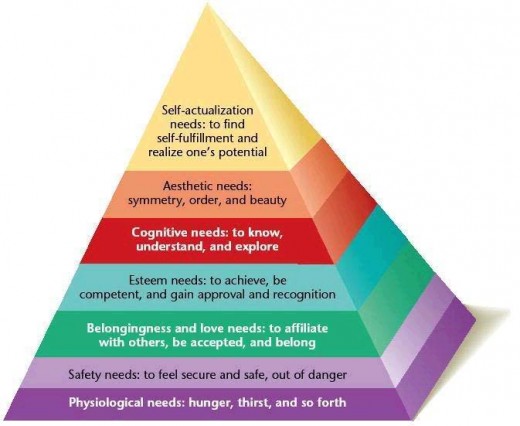
The Need-To-Know
My husband and I often tease each other about our addictions to our phones. His is a more focused 'addiction" a general interest in images of women or the latest football score, mine is a far more intricate addiction - I am addicted to knowledge.
I absolutely need to know more, more about new technologies, new discoveries, new ways to do things etc. My insatiable curiosity is a life long passion, I can't begin to tell you how nuts I drove my parents wanting to know more about absolutely everything! I devoured thousands of books from school and public libraries, I had encyclopedias and dictionaries by the shelf full and am probably the only person I know who had to literally give away hundreds of books in my teens because my mother had no more space for them in our home.
In recent years my need-to-know has met its match - social media and the internet. The internet on its own wasn't enough you see, because it was long pages and multiple sites would lead down wormholes. Social media has made everything bite size, easily digestible chucks of info in a quick summary that is just enough to let me know its definitely what I'm looking for, before I open the link and start reading article after article.
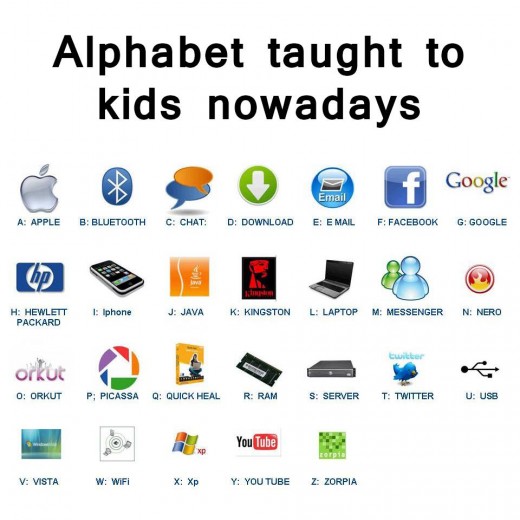
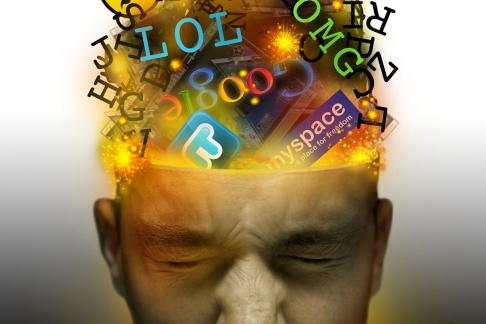
Married to Google
In recent years my need-to-know has met its match - social media and the internet.
The internet on its own wasn't enough you see, because it was long pages and multiple sites that would lead down wormholes that I simply didn't seem to have enough time to follow.
Social media has made everything bite size, easily digestible chucks of info in a quick summary that is just enough to let me know its definitely what I'm looking for, before I open the link and start reading article after article. better yet, I can subscribe to pages and sites I know are accurate and full of the kind of info I'm generally drawn to and now I can see multiple updates daily in my feed - but is this really helping me, is it really helping anyone?
Not too many years ago, we were a rather single minded species, we developed and honed our skills within a particular parameter and excelled as much as we could within that field. Nowadays it would seem that with all this access to information, Wikipedia and textbook authors sharing their views and their papers online, we have all become Jack-of-all-trades with insight into hundreds of different aspects of daily life. However, does this mean that we have gained passable knowledge of each and mastered none?
Are we less effective at doing one specific role because our minds are so full of everything else?
Its true that humans don't use the full capacity of our minds, but I have noticed within my own life and those of my clients in consult, that when your life gets busy and you are under pressure, your brain dumps what it deems "unnecessary" and focuses on its important task of survival.

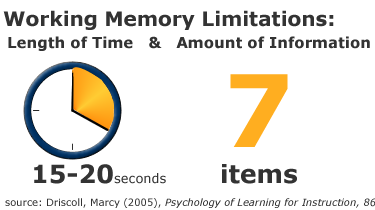
If the World's Technology was Taken Away Today, How Would You Fair?
Our Onboard Computer
Its true that humans don't use the full capacity of our minds, but I have noticed within my own life and those of my clients in consult, that when your life gets busy and you are under pressure, your brain dumps what it deems "unnecessary" and focuses on its important task of survival.
Maslow's Hierarchy of Needs break down human needs and evolution quite simply and quite succinctly.
Our first needs are our basic physiological needs - food, warmth, shelter, water, clean air
Followed by a need for security, stability - a safe home, a secure job, a consistent income
and thereafter things like friendships, creativity etc apply.
Let's consider that your brain is basically an onboard PC with limited memory and RAM. far more than the average PC certainly, but definitely finite. Have you ever gotten so busy at work you've forgotten to take meat out for dinner or pay a bill? Most of us have. We read multiple emails and Facebook statuses and then forgot what we set out to do that morning when we left for work. We read so much and see so much that we rarely remember the name of the author or the movie / book / website where we gleaned the information from, unlike our predecessors who could quote lines and remember who the poet was without prompting or Google.
Worse yet we are always under pressure and so the recollection of this data, which could probably be retrieved from our minds if we needed it, is always needed in a hurry and so rarely gleaned form the recesses of our minds - our memories are failing us from pure overload.
The sheer volume of information we are exposed to daily through billboards, television, radio, social media, smart phone updates & apps and printed media is utterly overwhelming, even for the most honed mind.
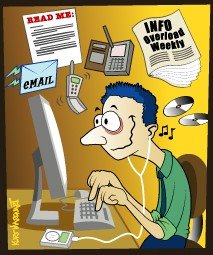
Quality vs Quantity
In today's world, we seem to have lost track of the basics within the small framework of our lives and instead seem to be skipping straight ahead to the higher levels of creativity etc.
For example, we now have access to endless information about global warming, politics, how to make things we never will and which celebrity is married to which gangster and what car they drive, but doe we know how to grow our own food and provide for our families?
If tomorrow all the technology in the world came to a grinding halt - post apocalyptic movie style, would we know how to survive? There are slews of "survivor" reality shows on television and if I have learnt anything from watching those, its that we certainly have not mastered level one of Maslow's Heirarchy anywhere near as well as our ancestors did - in fact most of those shows look more like soap operas than survival attempts!
If our food isn't readily available in an easy to read package on a shelf chances are we go hungry. Fewer men are able to provide a living through a real trade such as plumbing and metal works and are almost entirely reliant on machines and technology to get them through a working day. We have filled our minds with amazing facts about almost anything but most of us probably don't know how to make food from scratch, grow our own food or make textiles and clothes. If the zombie apocalypse hit tomorrow, we'd be as vulnerable as new born babes in the wild.
Things Every Human Being Should Know
- How to build a fire
- How to find water
- How to filter water
- How to find food
- How to grow food
- How to build shelter
- How to meditate and stay calm in a crisis
- How to make clothing / blankets
- How to tell direction and time without a compass or a watch
Finding Balance in a Virtual World
I'm not suggesting we all suddenly stop using technology all together of course, that would be naive and yield very little result other than chaos. However I am of the opinion that we need to learn to balance new technology with old learning, practical hands on trades.
Here are some guidelines I think our society needs to consider:
- Narrow your field of interest. yes, there's lots out there - you don't need to know everything about everything. If your interests and work lead you to be focused on technology then make sure at least 50% of what your "consuming" through information exposure is about that topic.
- Learn some basic survival skills - read up on and then try implement your knowledge. Can you grow your own vegetables if there 's a real food shortage? Do you know how to filter water or make a fire if your home was hit by a disaster? Do you know basic First Aid? Have you ever taught your children these skills so if something should happen to you they know how to survive?
- Limit your daily exposure to social media and the internet and even then, set yourself a guideline about what you want to do and where you want to go. If you're scrolling mindlessly through Facebook updates because you are bored, put the phone down! Go talk to your friends and family, walk in your garden and reconnect with the real world.
- Get to know your neighbours! Yes, you know what your friends all over the country are doing because they post images and updates every few minutes, but do you know who lives next door to you? If you were in a real medical emergency would you know if your neighbour was a doctor or a diabetic?
- Get a pet and spend at least an hour a day with them. Animals automatically remind us what a real connection and responsibility is about. They remind us to focus on the basics, do they have food and clean water, are they clean, can they sleep and when last did they go for a walk - simple, real.
- Meditate. Make some time daily, or at the very least weekly, to tune in and listen to whats really going on within. In the hustle and bustle of daily life we often suppress emotions, experiences and ideas that could be keeping us from growing or are making us ill.
- Make one day a week media free after hours. You just got shivers didn't you? The thought of one whole evening with no television, internet or cell phone probably scares you a little - but believe me, you'll not be bored,. You'll discover a whole world out there that you'd forgotten. Real people, real hobbies, a garden that needs tending, a car that needs washing, a jersey that needs knitting.







